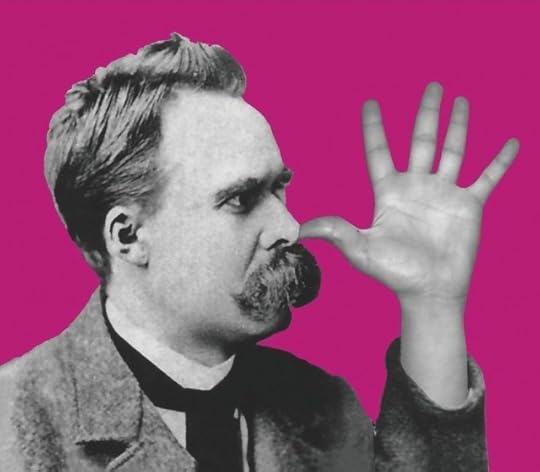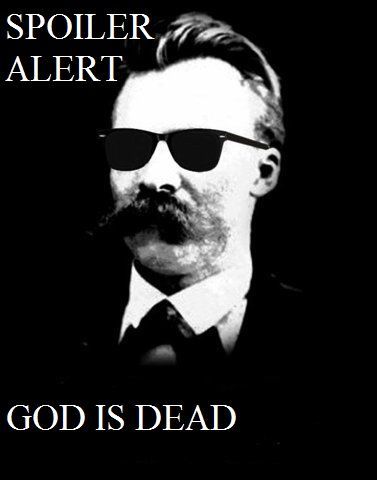Classics and the Western Canon discussion
Nietzsche, Beyond Good and Evil
>
Part Two, The Free Spirit
date newest »
newest »
 newest »
newest »
message 101:
by
Thomas
(new)
Oct 22, 2018 03:51PM
 Thanks, Lia! I'm looking forward to discussing that comment in a few weeks.
Thanks, Lia! I'm looking forward to discussing that comment in a few weeks.
reply
|
flag
 Lia wrote: "We have killed him, you and I! Everything is permitted!"
Lia wrote: "We have killed him, you and I! Everything is permitted!"Your welcome. :) But everything was permitted before we killed him. . .hmm.
 Is the will to power the only will, or do all the other wills serve it? The will to power seems to me to be defined as the mindset to master one's self, others, and the environment. Wouldn't the other wills just be tools of a will to power? A will to truth because knowledge is power, a will to happiness per William James, a will to indifference per Stocism, a will to absence of pain per Epicurus, etc.
Is the will to power the only will, or do all the other wills serve it? The will to power seems to me to be defined as the mindset to master one's self, others, and the environment. Wouldn't the other wills just be tools of a will to power? A will to truth because knowledge is power, a will to happiness per William James, a will to indifference per Stocism, a will to absence of pain per Epicurus, etc.Is this what he means when he says in 36:
Of course, “will” can work only on “will”. . .Does he mean "will" can only work on other "wills"?
 Here's a syllogism:
Here's a syllogism:If God is dead, then all things are permitted.
Not all things are permitted.
Therefore God is not dead.
 Roger wrote: "Here's a syllogism:
Roger wrote: "Here's a syllogism:If God is dead, then all things are permitted.
Not all things are permitted.
Therefore God is not dead."
St. Paul says, "All things are permitted, but not all things are seemly."
 Christopher wrote: "Roger wrote: "Here's a syllogism:
Christopher wrote: "Roger wrote: "Here's a syllogism:If God is dead, then all things are permitted.
Not all things are permitted.
Therefore God is not dead."
St. Paul says, "All things are permitted, but not all th..."
Hah! Good one! St. Paul denies the minor premise. But I think he was writing about dietary rules.





